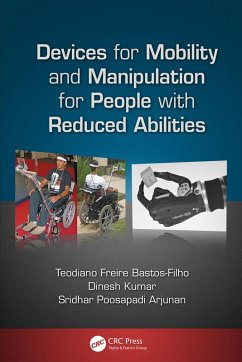Exploring the details of mobility and manipulative technologies, this volume provides insight into current research trends and discusses technologies that are under development. Each chapter covers one specific technology, starting with a general introduction, followed by technical details and an assessment from the user viewpoint-including the user benefits, user suitability, cost, reliability, and required infrastructure. Each chapter also provides illustrations or photographs of the devices, making it accessible to lay and clinical audiences. The book also identifies shortcomings, current research related to the technology, and possible development opportunities.
Dieser Download kann aus rechtlichen Gründen nur mit Rechnungsadresse in A, B, BG, CY, CZ, D, DK, EW, E, FIN, F, GR, HR, H, IRL, I, LT, L, LR, M, NL, PL, P, R, S, SLO, SK ausgeliefert werden.


